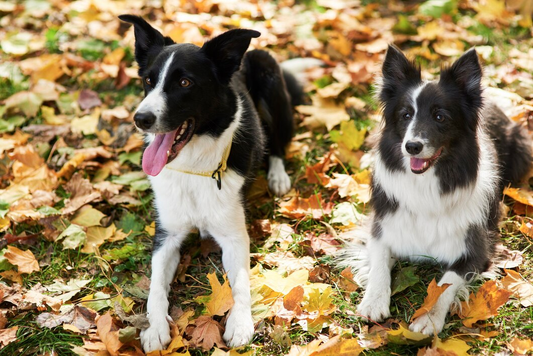Choosing the right dog for your home requires understanding the differences between small vs large dog breeds. Each size category comes with unique benefits, challenges, and care requirements. By examining factors like space requirements, exercise needs, and temperament differences, prospective dog owners can make an informed decision that suits their lifestyle.
This guide provides a comprehensive overview of small and large dog breeds, helping families, singles, and pet enthusiasts select the best fit.
Space Requirements for Small and Large Breeds
One of the most important considerations when choosing a dog is the amount of space available at home.
Small Dog Breeds
Small breeds such as Chihuahuas, Dachshunds, or Pomeranians are well-suited for apartments or smaller living spaces. Their compact size allows them to move comfortably indoors, and they often adapt well to shared living environments. However, even small dogs need dedicated space for play and rest to maintain their well-being.
Large Dog Breeds
Larger breeds like Golden Retrievers, German Shepherds, or Great Danes require more space to move freely. Homes with yards or access to open areas are ideal for these dogs. Crowded or confined spaces can lead to stress, boredom, and behavioral issues in larger breeds.
Understanding your living environment and the dog’s space requirements ensures a comfortable and healthy home for both you and your pet.
Exercise Needs
Exercise is crucial for maintaining physical and mental health in all dogs, but small vs large dog breeds have different requirements.
Small Breeds
Small dogs often have bursts of energy that can be met with shorter walks and indoor play sessions. While they may need less overall exercise than larger breeds, regular activity is still essential to prevent weight gain and encourage healthy growth. Toys, training games, and short outdoor adventures can provide sufficient stimulation.
Large Breeds
Larger dogs typically require more extended exercise routines, including long walks, runs, or off-leash play in safe environments. Without adequate physical activity, larger breeds may develop joint problems, obesity, or destructive behaviors. Structured exercise routines contribute to both health and behavior management.
Temperament Differences
Temperament differences play a significant role in determining which breed suits your household.
Small Dog Temperament
Small breeds are often lively, alert, and affectionate. They can form strong bonds with family members and are usually more portable for travel or outings. Some small dogs may display protective tendencies or anxiety, especially in crowded or noisy environments.
Large Dog Temperament
Larger dogs tend to be calm, loyal, and confident. They may act as gentle companions, excellent with children, and protective when needed. However, their size and strength require consistent training and socialization to ensure good behavior around people and other animals.
Grooming Considerations
Both small and large breeds require grooming, but the approach may differ based on coat type and size.
- Small dogs: Easier to bathe, brush, and handle during grooming sessions. However, certain breeds with long hair may need frequent maintenance.
- Large dogs: Require more space and potentially more time for baths and brushing. Professional grooming may be more practical for certain large breeds.
Grooming services or quality tools from Puppy Mansion Grooming can help maintain your dog’s coat and hygiene, regardless of size.
Nutrition and Feeding
Proper nutrition is essential for all dogs, but the quantity and type of food vary between small and large breeds.
- Small breeds: Require calorie-dense meals in smaller portions. Overfeeding can lead to obesity quickly due to their size.
- Large breeds: Need diets rich in protein and essential nutrients to support bone growth and overall health. Feeding large breeds appropriately reduces the risk of joint problems and other health issues.
Consulting with your veterinarian can help you choose the right diet to meet the nutritional needs of your dog’s specific breed and size.
Health Considerations
Certain health issues are more common in specific breed sizes.
- Small dogs: Prone to dental issues, patellar luxation, and respiratory concerns in brachycephalic breeds.
- Large dogs: Higher risk of hip dysplasia, joint problems, and bloat.
Preventive measures, regular vet visits, and proper diet and exercise routines can minimize these risks. Using products from Puppy Mansion’s pet collection can also support overall health and wellness.
Lifestyle Compatibility
Matching a dog’s needs with your lifestyle is crucial. Consider factors like:
- Home size and environment
- Daily schedule and activity levels
- Experience with dog ownership
- Family members and other pets
By evaluating your lifestyle against small vs large dog breeds, you can select a dog that thrives in your care and complements your daily routine.
Choosing the Right Dog for Your Home
Selecting between small vs large dog breeds depends on your living situation, activity level, and lifestyle preferences. Both sizes have advantages and challenges, but with proper care, training, and attention, any dog can become a cherished family member.
Ensure your dog receives proper nutrition, grooming, and preventive care with Puppy Mansion Miami’s wide range of products and services. Contact us today at Puppy Mansion to explore how we can support your dog’s health, happiness, and overall well-being.




